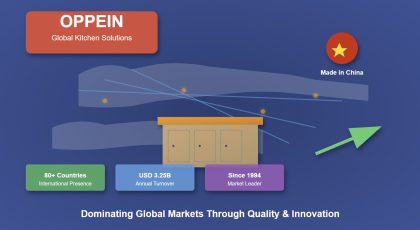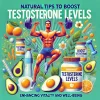The bulk of the retail industry does not make their own merchandise themselves, but buys it from suppliers. If you are starting your own retail business, finding suppliers for your products is undoubtedly one of your first concerns. Depending on the nature of your retail business, you may well end up with a wholesaler. The advantage of working with wholesalers is that they are often flexible enough to grow with your business as it develops.
Even so, finding, selecting and buying from a wholesaler is a whole new experience for many start-up retailers. Therefore, we have some tips to get you started:
- What does buying from a wholesaler mean?
- Finding a wholesaler
- Choosing a wholesaler
- Other factors when buying from wholesalers
- Is your shop future-proof?
- This guide tells you more about new retail tactics that will prepare you for the future of retail
What does buying from a wholesaler mean?
Buying from a specialty retailer and buying job lot from a wholesaler are two different things. When you buy your merchandise from a wholesaler, you buy directly from the middleman between shop and manufacturer. You almost always buy from wholesalers in bulk, which means you can get discounts more often.
Consumer price
After you buy your products from a wholesaler, you can sell them at a higher price in your own shop to make a profit. That higher price is the selling or consumer price: the price customers pay when they shop with you.
Selling prices vary from company to company and there are several pricing strategies for determining the best selling price for you. Next, you can calculate your gross profit.
Gross profit
You can calculate your gross profit by subtracting your costs from your turnover:
Gross profit = turnover – cost
In the formula above, turnover equals the selling price you charge your customers. Cost is the purchase price of your products, but includes all costs involved in producing and selling goods. However, fixed costs are not included in gross profit calculations. To avoid making it too complicated for when you buy your products from a wholesaler, we can say that the selling cost of your products is equal to the purchase price you paid for them. This means that gross profit is the amount you earn per sale.
Margin
Retailers raise the price of the goods they buy from a wholesaler to make a profit. The difference between the sale and purchase prices is called the margin, also called “profit mark-up” or “trading margin”.
For example: you buy a T-shirt from a wholesaler for a purchase price of 2 euros and then sell it in your shop for 10 euros. In that case, the profit mark-up is 8 euros, and so the gross profit for that sale is also 8 euros. Keep this in mind when you buy products for your business. If the prices of the wholesaler you get your products from are high, this will affect the profitability of your business.
Market value
The prices you charge your customers should also not deviate (too much) from the general market value of the products you sell. Today, it is easier than ever for consumers to find better deals online or in other shops. Your price is a way to compete productively and create loyal customers.
Minimum purchase quantities
Usually cheap wholesale prices are often dependent on a minimum purchase quantity, or the minimum number of pieces of a product you will have to buy. Wholesalers often set minimum purchase quantities to achieve their own sales and profit targets.
So since you will often have to buy larger quantities of products to meet a wholesaler’s requirements, it is a good idea to buy your best-selling items from a wholesaler. A modern POS system like Lightspeed Retail allows you to easily track which products are the most popular and which are the most profitable.
Finding a wholesaler
There are several ways to find a wholesaler. If you know other entrepreneurs, you can also use your network to ask for information on which wholesalers are interesting and which are not recommended. If your manufacturers are abroad, large bulk platforms and online marketplaces like Alibaba, eBay and Etsy are interesting for finding thousands of retailers, wholesalers and manufacturers in one place.
Although such online marketplaces generally tend to serve different audiences, there is some overlap. The contact options on both platforms make it easy to connect with suppliers from all over the world.
Choosing a wholesaler
Once you have compiled a list of interesting wholesalers, you can use Google to read online reviews from other retailers. Then you will know if it is worth getting in touch. Do you have a final list of the best wholesalers for your retail business? Here are some essential questions to determine which ones you want to partner with and which ones you don’t:
What do you sell?
Whether you sell a wide range of items or have a very specific and nice range, you need to choose wholesalers that supply the products you are looking for. Of course, you can work with multiple wholesalers to find all the products you need. Just make sure that the products from these wholesalers fit the kind of shop you have, so that your brand comes across consistently.
What is your price point?
You sell the goods you buy from a wholesaler to make a profit, of course. Therefore, when choosing a supplier, make sure you can agree on prices that will allow you to realise your desired profit margin.
Is the wholesaler reliable?
Don’t deal with people you can’t count on. Wholesalers who deliver your goods late or frequently deliver damaged merchandise are not good for your business. Online reviews and an initial contact with the customer service department of the wholesaler in question can help.
Do they have good customer service?
Check whether a company you want to work with has reliable customer service that is easy to reach and has a decent response time. If you have to go through a lot of trouble to get an answer to a question or even get no one on the line, it might be better to cross this wholesaler off your list.
How much do they know about your product?
The wholesaler you choose should know about the products you sell. You can also share that information and your wholesaler’s reputation with your customers because you know you have a partner who guarantees the quality of their range. Wholesalers who cannot answer your questions about their products properly may not be interested enough in your goods. A good business partner will always be able to answer your questions to your satisfaction.
Can they help you with dropshipping?
If you sell products online, it might be interesting to ask if your wholesaler offers dropshipping. This is a shipping method where the wholesaler arranges your stock and shipping. With dropshipping, the details of someone who places an order in your webshop are forwarded to your wholesaler. They then send the products directly to your customer.
Dropshipping is an attractive option if you want to save on warehouse space and shipping costs, but you do relinquish a lot of control. If you think dropshipping is for you, do ask your wholesaler to send you a sample of each product to make sure the quality meets your requirements.
Other factors when buying from a wholesaler
Determine order quantities
Besides determining the products you want to buy, you also need to calculate how much of them you need and want to buy. Avoid overestimating and use free calculator tools to determine your order quantity for each product.
Now that you know what your order quantities are, Lightspeed Retail allows you to track which items are at or below your desired inventory levels. Once you have your order points set for your stock levels, you can use the Reorder List reporting to see which goods are in limited stock and need to be reordered.
Don’t be afraid to haggle
Wholesalers are used to selling in bulk and being (relatively) flexible with their selling prices. Therefore, do not hold back on negotiating the price when you feel it is necessary as a function of your gross profit. Let your wholesaler know when your sales are going well and how much more you can buy in exchange for a better deal. Be sincere and fair in your negotiations to ensure a long-term relationship with your wholesaler.
Organise your storage space
Unless you are dropshipping, before your bulk orders hit the curb, make sure you have a storage space that is well laid out. A warehouse with enough storage space, shelves and shelves makes it easier to find everything. Use labels to make sure everything has its own place and you can find things easily
Finding the right products for your shop
Knowing how to buy from a wholesaler is an important step in increasing your profits and range. So take enough time to calculate everything and make sure you are buying and selling goods at prices that contribute to the success of your retail business. Again, you can rely on a modern POS system for this kind of calculation work.
Work with wholesalers with high-quality products, reliable service and the flexibility needed to support your growth and development. Ask the right questions with the right numbers in your pocket, and you will see that this will help you make smarter business decisions.
Wondering how the complete Lightspeed enterprise platform can help you better manage suppliers, inventory and purchase orders? Contact one of our experts today and find out all about it.








